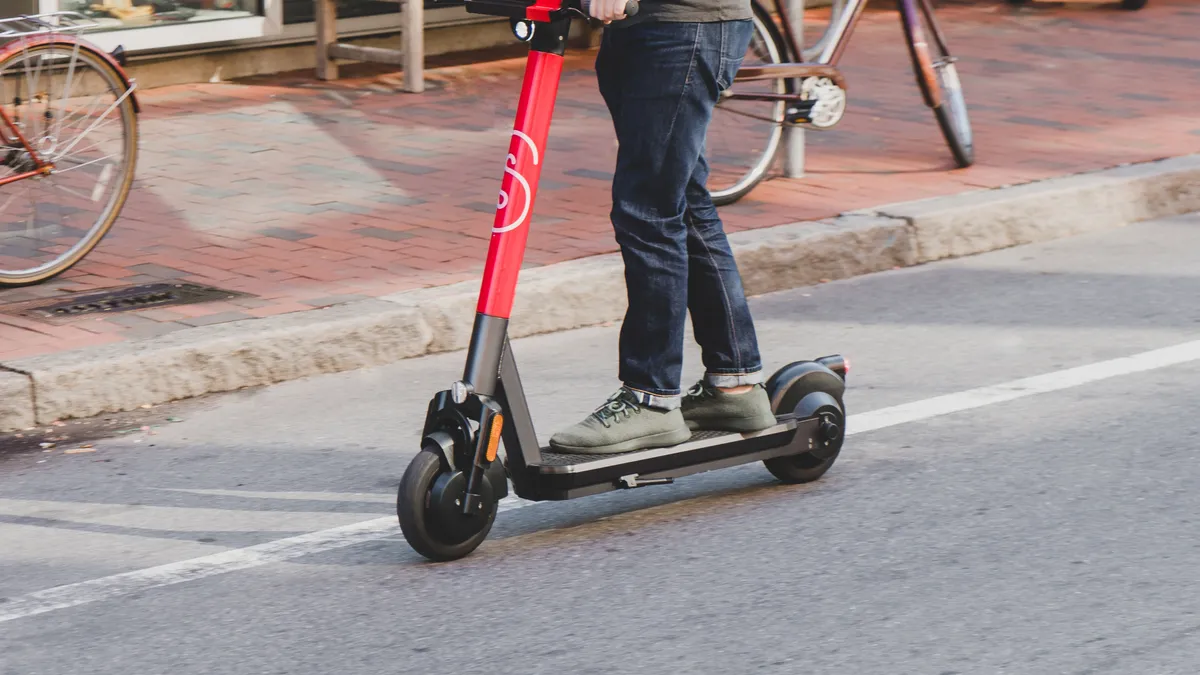Dive Brief:
- Superpedestrian, a micromobility company spun out of MIT, announced $20 million in funding to support the production and launch of its scooter fleet with original software that detects and protects against common malfunctions. The newest funding brings total investment in Superpedestrian to $64 million, according to a release from the company.
- Superpedestrian's software scans thousands of potential malfunction points, from braking issues to frayed wires, and either fixes them or prepares the scooter to be disabled and taken in for repairs. The software is designed to be installed in any micromobility device, but is currently only on its self-made scooters.
- The vehicles, which will be launched in January, are designed to last for more than 2,500 shared rides, ten times the industry average, and store city rules on board to automatically enforce speed and parking restrictions.
Dive Insight:
Despite their booming popularity, safety concerns have dogged the rollout of scooters and shared e-bikes. Lyft, for example, had to pull 1,000 bikes from San Francisco this summer over battery fires (the bikes had previously been repaired for brake issues). Skip and Lime have also had to take scooters off of streets for safety reasons, and there have even been concerns that some vehicles could be hacked.
Those safety concerns aren't just a danger to customers, but also mean that vehicle fleets are less efficient than they should be. Assaf Biderman, founder and CEO of Superpedestrian, said that micromobility services will be hampered without a more proactive approach to safety.
"These vehicles are being super-used and abused, and there's no way to have 1,000 caretakers for 1,000 vehicles," Biderman told Smart Cities Dive. "We realize the only thing to do is to create autonomous technology that replaces the human supervisor and enables you determine if a vehicle is safe or not. As a result, we lower the risk of harm and lower the economic cost as well."
Many scooters are currently bought off-the-shelf, so companies may not even know about the full extent of safety issues. Superpedestrian's software essentially does safety checks before and during each ride, correcting minor issues and flagging more substantial repairs. According to the company, that will not just keep vehicles out of the shop, but it will allow them to stay on the road longer than existing fleets.
The software took six years to develop, and is now being installed in Superpedestrian's in-house scooters (among other features, the vehicles have a 90 km battery range and a new braking system that reduces energy waste). Those will launch in January in a market to be announced. Biderman said that not only will the safety software help make his company more economical, but also help avoid some of the regulatory problems that have dogged other companies.
"It's wrong to think that once vehicles are on the road it's all about education and infrastructure. They also need to be safe,” he said. "Regulators are beginning to understand what they can ask in advance, and how to protect riders better."











